 Building Operational Efficiency: Tools and Strategies for Independent Advisors
Building Operational Efficiency: Tools and Strategies for Independent Advisors
Operational efficiency isn’t just about saving time—it’s about creating space for growth. As the demands on independent advisors continue to increase, so does the need for smarter systems, scalable processes, and focused delegation. The right infrastructure can improve client service, reduce errors, and give advisors back the most valuable resource of all: their time.
Running a Business, Not Just a Practice
Independent advisors wear many hats—advisor, business owner, compliance officer, tech lead, and operations manager. But trying to do everything in-house often creates bottlenecks that limit capacity and impact client service. Operational efficiency starts with knowing what to automate, what to delegate, and where your time delivers the most value.
Below, we outline four key strategies to streamline operations and support sustainable growth.
CRM Systems: Your Command Center
A well-structured CRM is more than a database—it’s the backbone of day-to-day practice management. When fully integrated and actively used, it helps track client interactions, assign follow-up tasks, manage workflows, and ensure no relationship falls through the cracks.
What to focus on:
- Integration with planning, billing, and custodian systems
- Automated client reminders and workflow triggers
- Centralized dashboards that show priorities at a glance
- Team-wide consistency in how client data is used and updated
What matters most is that your team uses it—and uses it well. Time spent setting it up properly pays off in fewer missed steps and smoother client service.
Workflow Automation: Reduce the Repetition
Many tasks in an advisory firm—onboarding, form collection, billing, scheduling—are repeated frequently. When these steps are manual, they consume time and introduce variability. When automated, they become efficient, consistent, and scalable.
Strategies include:
- Standardized task templates for onboarding and reviews
- Secure e-signature and document routing
- Automated scheduling tools and reminders
- Billing cycle automation with reconciliation checkpoints
The goal isn’t to eliminate people from the process—it’s to eliminate unnecessary manual steps that get in the way of consistency and scale.
Outsourcing: Focus on Your Highest-Value Work
As firms grow, operational complexity grows with them. Advisors often find themselves buried in tasks that, while important, don’t require their direct attention. Outsourcing these responsibilities allows advisors to stay focused on clients, strategy, and leadership.
Areas to consider:
- Administrative tasks (form prep, scheduling, CRM updates)
- Marketing execution (email campaigns, social media, content delivery)
- Data reconciliation, billing reviews, and reporting
- Compliance support (document review, policy documentation)
- Model portfolio execution and rebalancing
You don’t need a large team. Even partial support in key areas can meaningfully improve how the business runs.
Build Systems That Support, Not Depend on You
Firms that scale well don’t rely on memory or improvisation. They rely on documented processes, defined responsibilities, and clear internal handoffs. Without these systems, continuity suffers and growth slows.
Start by building:
- Documented onboarding and client review procedures
- Escalation protocols for service and compliance issues
- Defined roles and accountability across your team or vendors
- Dashboards that surface overdue items or bottlenecks
If your firm can’t operate smoothly for a week without you, it’s not yet built to scale.
Operational efficiency is no longer optional. It’s the foundation that supports growth, succession, client retention, and long-term enterprise value. Whether you’re a solo advisor aiming to protect your time, or a growing team facing rising complexity, investing in systems now pays off in flexibility and freedom later.
A better business isn’t built on more effort—it’s built on better systems.
